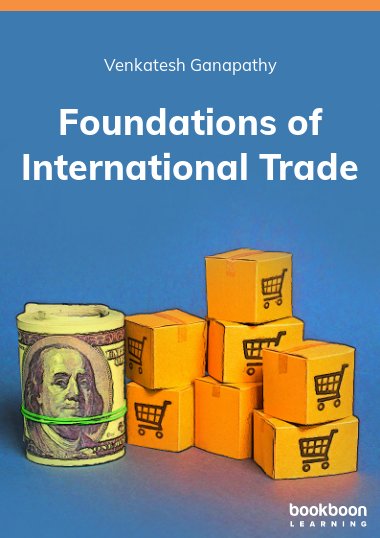International trade is any business activity conducted by a business in a foreign shore. Differences in consumer expectations, varying regulatory norms in different nations and changing demographics are redefining the business landscape. Advances in digital communication technologies and the growing need for ethical conduct by businesses are further complicating the matter. The nature of political relationships between countries is affecting business operations of multinational corporations. Overcoming the cross-cultural barriers has become crucial for multinational corporations to succeed.
About the Author
Venkatesh Ganapathy presently works as Associate Professor (Marketing) in Presidency Business School, Bangalore. He has worked in the industry for close to two decades in organizations like Castrol India Limited (part of BP PLC) and Firepro Systems Private Limited. He has had a rich and diverse cross-functional experience in areas like Research & Development, Technical Services, Quality Assurance, Strategic Sourcing, Performance Management, and Project Management during his stint in the corporate world.
Venkatesh’s commitment and passion for teaching has made him popular among students. His industry experience has not only added value to his classroom delivery but has also enabled students to seek counseling guidance and placement assistance from him. Venkatesh is adept at teaching subjects in the domains of marketing, human resources, and general management. He has delivered keynote presentations at conferences/ seminars to audiences both large and small.
Venkatesh has always adopted an innovative style of teaching focusing on the use of audiovisual media, contemporary business case studies and charts to explain complex phenomena in a simple fashion. His agility in completing the tasks assigned to him on time coupled with an organized way of working and expertise in documentation has come handy during the statutory accreditations sought by the business school.
Venkatesh completed his degree in oil technology from University Department of Chemical Technology, Mumbai followed by MBA from Southern New Hampshire University, Boston and a diploma in supply chain management from American Planning and Inventory Control Society (APICS). Venkatesh has also earned a Fellowship in Insurance from Insurance Institute of India, Mumbai.
Venkatesh has published 16 books so far. He is also the author of 50 research papers that have been published in national and international journals of repute. He has presented his research efforts in national and international conferences and has been the recipient of awards and scholarships. He has a profound interest in content writing and has written over 300 blogs. His research interests are in services marketing, insurance and supply chain management.
Venkatesh is based in Bangalore, India.


